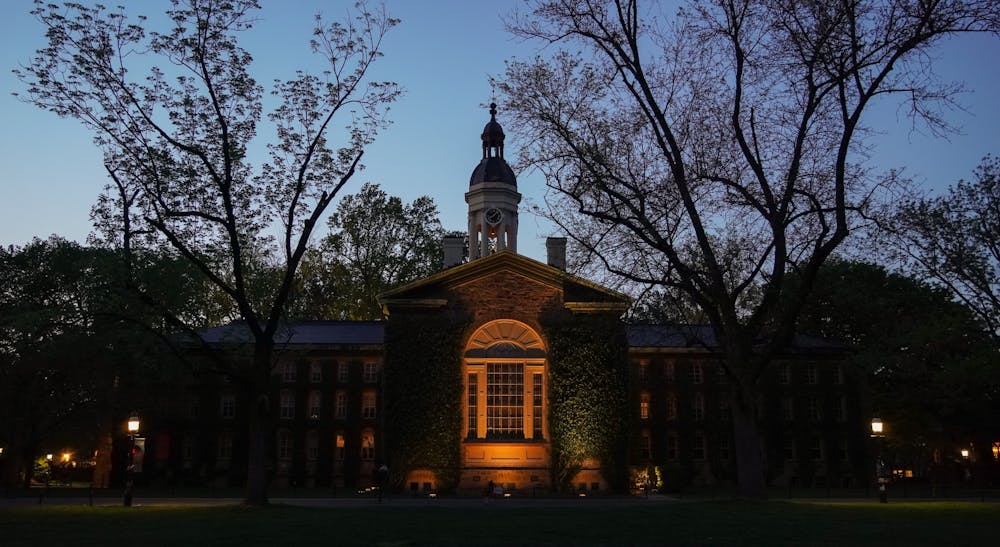In the days since the Hamas terror attacks of Oct. 7, which resulted in the kidnapping and murder of thousands, universities across the United States released formal statements with strikingly differing tones. Responses from peer institutions, including Harvard, UPenn, and Columbia, faced widespread press, public and donor backlash, and have been criticized for being relativistic and lacking moral clarity. Princeton’s timely, morally unambiguous response, emphasizing compassion and education in the service of humanity, constituted a stark contrast to those of peer institutions.
Princeton’s proactive response demonstrated decisive leadership, setting the tone for campus dialogue. Harvard President Claudine Gay’s initial, widely criticized Statement to the Harvard Community was released on Oct. 9. The statement was viewed principally as a reaction to the perceived co-opting of Harvard’s stance by some 34 campus student groups, and had to be officially revised and qualified multiple times. Despite being released a day later, President Christopher Eisgruber’s statement preceded a majority of those made by campus groups, enabling Princeton’s administration to guide subsequent engagement within the University community. Insofar as Princeton’s statement established the University’s stance, it became the benchmark for guiding further discussion and responses.
At Penn, President Liz Magill waited eight days to release a definitive response. Students, donors, and the public viewed Penn’s delay as disappointing and weak, and the subsequent statement as forced. Campus tensions at Penn escalated amidst allegations of antisemitism. Rather than remaining silent, Princeton’s response denouncing the events of October 7 as the “most atrocious of terror attacks” rejected any moral ambiguity. Providing a robust moral foundation for Princeton students to guide conversation, the statement provided clarity about how the University community should engage with one another on complex topics. In appearing decisive and thoughtful, Princeton’s statement contributed to creating space for dialogue by proactively guiding the campus community away from division and conflict.
Princeton’s statement also sent a powerful message by directly naming the groups impacted by Hamas’ attacks and the subsequent outbreak of war — both Israelis and Palestinians. Centering humanity in its call for compassion distinguished the University’s statement from peer institutions. Unlike statements from Columbia, which omitted mention of Hamas, and Penn, which did not name the peoples impacted by violence — neither Palestinians nor Israelis — Princeton’s statement thoughtfully recognized those communities. Not only did Princeton’s message convey the human cost of violence, but it also emphasized the profound personal impact of the conflict on members of the University community. By centering Princetonians’ individual and collective experiences, the University’s statement attempted to pull the University community together in compassion to reject division and seek dialogue.
Princeton’s statement demonstrated an appreciation of the inevitability of student discussion and debate and emphasized compassion as the cornerstone of serious, thoughtful dialogue about complex issues. Princeton’s message highlighted SPIA’s information-focused response, which included several scholarly analyses, a lecture by Daniel Kurtzer, former US Ambassador to Israel, and a panel discussion featuring Salaam Fayyad, former Prime Minister of the Palestinian Authority, Kurtzer, and others. Rather than pushing students towards a particular position on contextual issues that drive debate, or suppressing discussion altogether, Princeton’s response emphasized knowledge-seeking through education as essential to informing meaningful discourse.
Princeton’s informal motto is “in the nation’s service and the service of humanity.” October 7th and the days since have borne witness to horrific violence and human tragedy in Israel and the Palestinian territories. No institution alone is wholly capable of addressing a profoundly human issue, especially one with such a deeply complex historical context. Instead, individuals, whether it be university presidents, scholars, students, or advocates, must come together to acknowledge our common humanity — in the service of humanity. To do so requires precisely what Princeton’s statement called for, which is to reject moral ambiguity, “recognize suffering,” and seek knowledge in a context of “grace and compassion.”
Aidan Gouley is a contributing columnist intending to study in the School of Public & International Affairs. He is a first-year from Fairfield, Connecticut.








